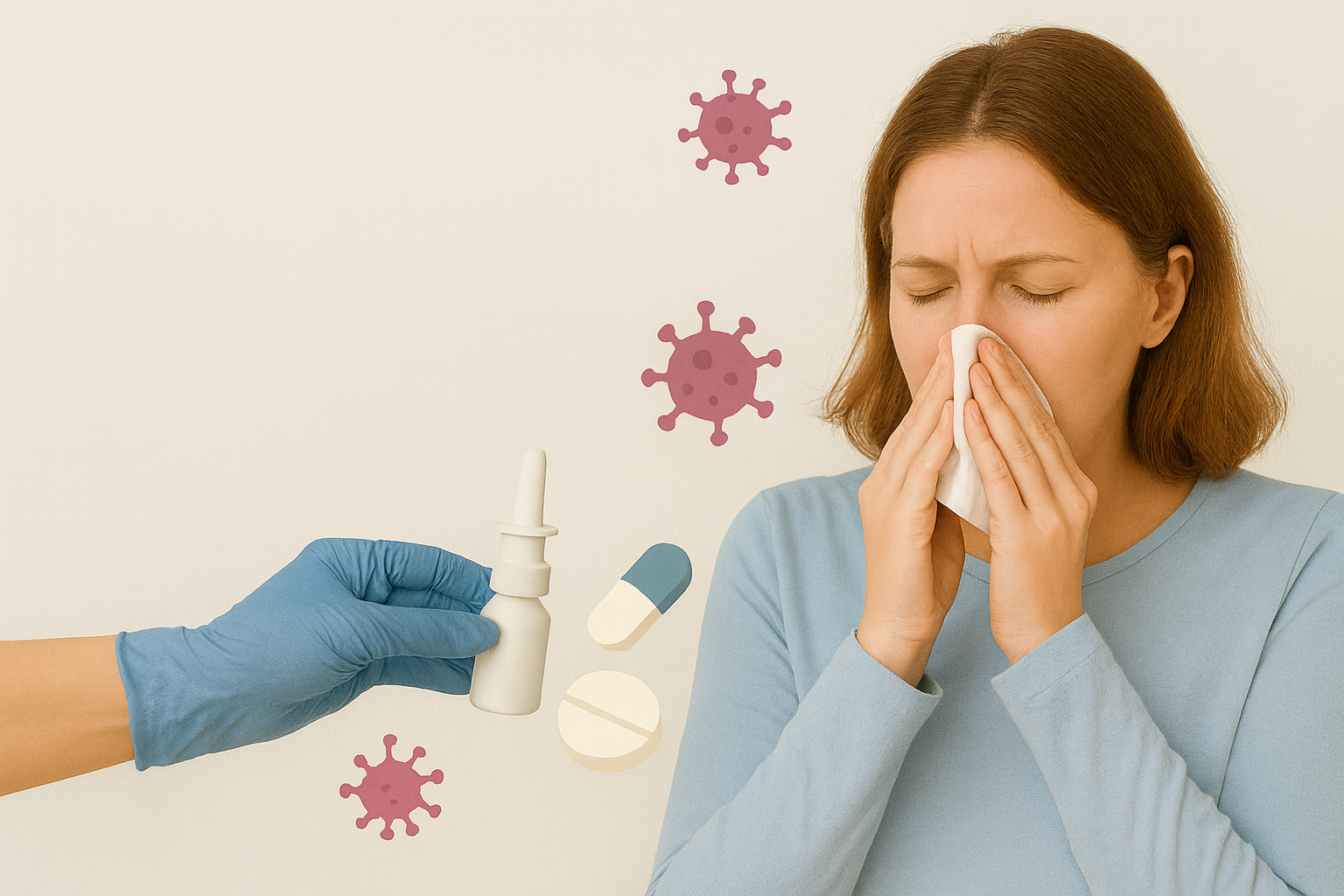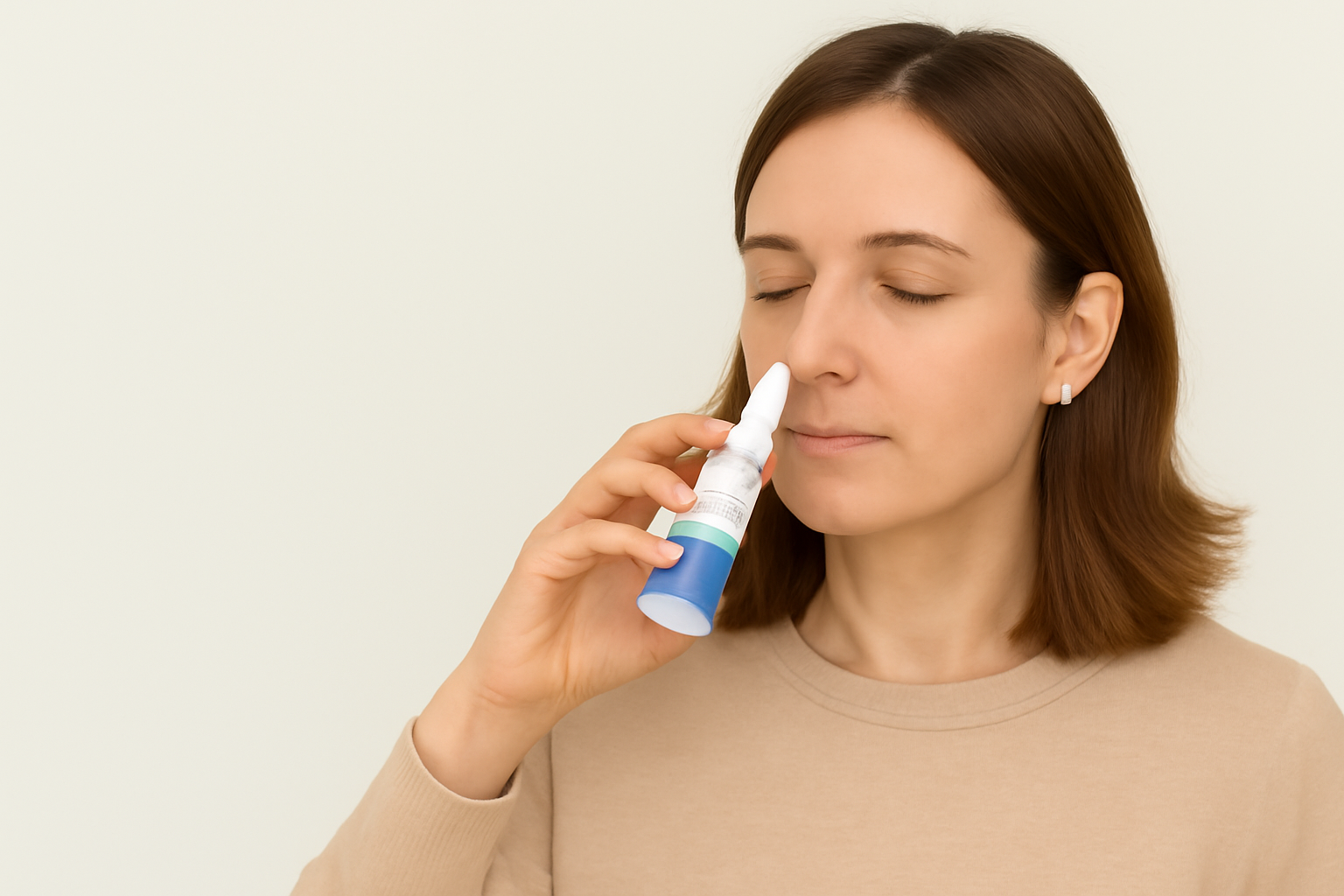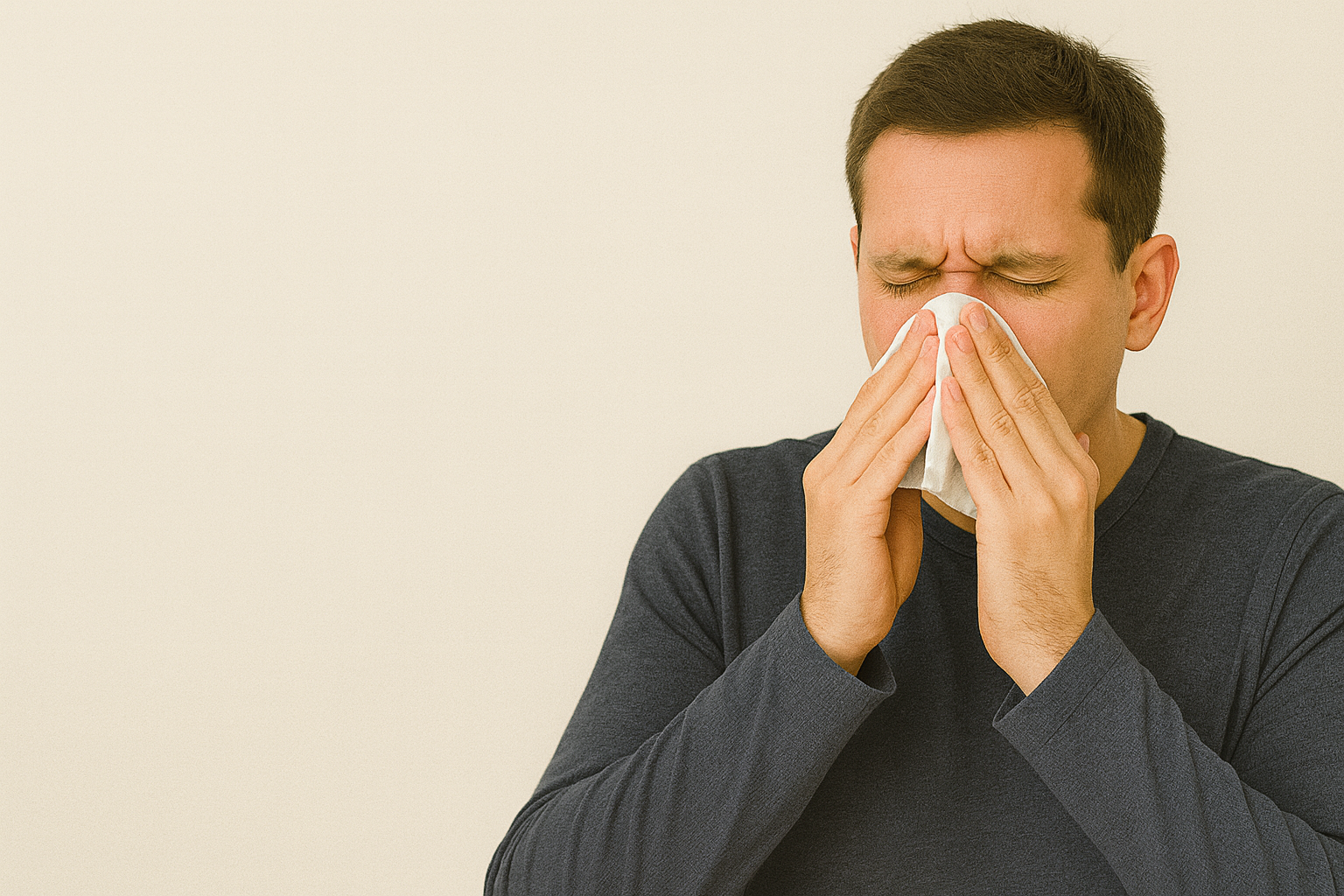Understanding RSV, Flu, and Measles
These three viral illnesses share overlapping symptoms—fever, coughing, congestion, and fatigue—but differ in severity and transmission:
- RSV (Respiratory Syncytial Virus): Affects the lungs and breathing passages, especially dangerous for infants and older adults.
- Flu (Influenza): A seasonal respiratory infection that can cause high fever, sore throat, and body aches.
- Measles: A highly contagious viral disease that causes fever, cough, and a distinct rash, often leading to complications if unvaccinated.
While all three spread primarily through airborne droplets, they can also survive briefly on surfaces, making hygiene and vaccination key defenses.
Prevention: Stopping Viruses Before They Start
The best protection against these viral infections starts with consistent preventive care:
- Vaccination: Stay updated on your flu shots and measles (MMR) vaccines. RSV vaccines and monoclonal antibodies are now available for vulnerable groups.
- Nasal and throat hygiene: Keeping nasal passages clean with saline or safe antiseptic sprays helps reduce viral load where these infections first enter.
- Masking and distancing: Particularly useful during outbreaks or in crowded indoor spaces.
- Boost immune health: Eat nutrient-rich foods, manage stress, and get adequate rest to help your immune system fight off infection.
- Hand hygiene: Wash hands regularly with soap or use sanitizer, especially after being in public areas.
Early Treatment: Acting Quickly to Prevent Complications
Even with preventive steps, infections can still occur—but early treatment helps reduce severity:
- RSV: Stay hydrated, use humidifiers, and consult a doctor if breathing becomes difficult. Severe cases may require medical oxygen or antiviral treatment.
- Flu: Antiviral medications like oseltamivir (Tamiflu) can help shorten the illness if started early.
- Measles: There’s no specific antiviral cure, but supportive care (hydration, vitamin A, and rest) helps manage symptoms while your immune system clears the virus.
Complementing medical care with nasal hygiene—like gentle use of povidone-iodine or saline sprays—can help maintain clear airways and comfort during recovery.
Why This Matters
RSV, flu, and measles aren’t just childhood illnesses—they affect people of all ages. Seasonal surges remind us that consistent prevention is far more effective than post-infection treatment.
By combining vaccines, good hygiene, and early care, communities can drastically reduce the spread and impact of these diseases.
Final Thoughts
Staying protected from RSV, flu, and measles doesn’t have to be complicated. The key lies in routine prevention and swift action at the first sign of symptoms.
If you’re looking for an easy daily habit to strengthen your respiratory defenses, try incorporating the Immunemist Nasal Cleanse into your routine. It supports nasal hygiene and can help you breathe easier during viral seasons.



.png)


.png)